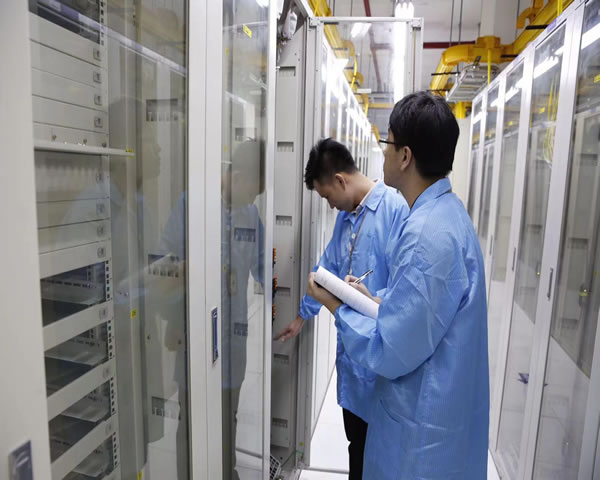with the popularity of cloud computing, more and more people are paying attention to how to build personal servers to better manage data and services. especially in germany, with its data protection regulations and stable network environment, setting up a personal server can not only improve data security, but also improve work and life flexibility. this article will introduce in detail the steps to build a personal server in germany to help you easily implement your own cloud environment.
the first step in setting up a personal server is to choose the right hardware. depending on your needs, you can choose a solution built on a physical server or a virtual private server (vps). if you want to set up a server at home, you can choose a better-performing pc or dedicated server equipment. additionally, ensure that the device's network interfaces and storage space can accommodate future expansion needs. proper hardware selection will lay a good foundation for subsequent configuration and use.
when setting up a personal server, choosing the right operating system is crucial. common server operating systems include linux distributions such as ubuntu, debian, and centos, which are known for their stability, security, and open source. depending on your usage habits and technical level, you can choose the corresponding operating system for installation. for novice users, ubuntu is often a good choice due to its user-friendly interface and rich online resources. once the installation is complete, make sure to update your system regularly to keep your server secure.
in terms of network configuration, you need to assign a fixed ip address to the server to ensure stable access by external devices. at the same time, it is recommended to use firewall software to protect your server from hackers. complying with data protection regulations is very important in germany, so make sure your server configuration complies with the requirements of the gdpr (general data protection regulation). in addition, enabling ssh (secure shell protocol) for remote management will greatly improve the security of the operation.
after setting up the hardware and operating system, you need to install the necessary software. this includes web servers (such as apache or nginx), database management systems (such as mysql or postgresql), and development language environments (such as php or python). depending on your needs, you can also install other applications, such as cloud storage solution nextcloud, or media server plex, etc., which can help you better utilize the functions of your personal server.
data security is an integral part of personal server management that cannot be ignored. regularly backing up data is an important measure to prevent data loss. you can use tools such as rsync and bacula to achieve automated backup. additionally, it is recommended to store backups in different physical locations to avoid data loss due to hardware failure. develop a detailed data recovery strategy so that services can be quickly restored in the event of an accident and ensure business continuity.
after setting up a personal server, regular optimization and maintenance are essential. by monitoring server performance, potential problems can be discovered and resolved in a timely manner to ensure high server availability. using tools such as nagios or zabbix for monitoring can help you obtain system status and performance indicators in a timely manner. in addition, regularly cleaning unnecessary files and logs to keep the system clean will help improve the operating efficiency of the server.
it is not difficult to build a personal server and implement your own cloud environment. as long as you plan and implement it according to the above steps, you can have an efficient and secure personal server. throughout the entire process, choosing the right hardware, operating system, and software is key, as well as paying attention to network security and data backup. i hope this guide can help you successfully set up a personal server and enjoy a more efficient work and lifestyle. if you encounter problems during the construction process, you may wish to seek help from relevant communities. sharing experiences will help you solve the problem faster.

- Latest articles
- U.s. High Defense Server Xiaoai Function Analysis And Usage Guide
- Advantages And Practical Applications Of Hong Kong Positioning Server
- Practical Tips On How To Buy Thai Cloud Servers At Low Prices
- The Best Way To Get A Free Ip Address For A Taiwanese Server
- Explore The Best Usage Scenarios Of Thailand Dynamic Dial-up Vps
- Learn The Truth About Whether Server Rent In Thailand Is Expensive
- Analysis Of Diverse Application Scenarios Of Hong Kong Vps
- Comparison And Recommendation Of The Cheapest Cloud Servers In Vietnam
- Best Options And Suggestions For Renting A Server Outside Malaysia
- Stability Evaluation And User Feedback Of Shatin Computer Room In Hong Kong
- Popular tags
-
Best Practices And Case Sharing Of German Server Hosting
explore the best practices and case sharing of server hosting in germany, improve website performance and security, and learn how to choose the right hosting service. -
German Server Collection: Comprehensive Analysis Of The Characteristics Of Different Types Of Servers
Comprehensively analyze the different types and characteristics of German servers to help choose the most suitable server solution. -
FAQs And Answers About German Server Hosting
This article answers in detail the common questions about server hosting in Germany, helping users better understand server hosting services and their advantages.


